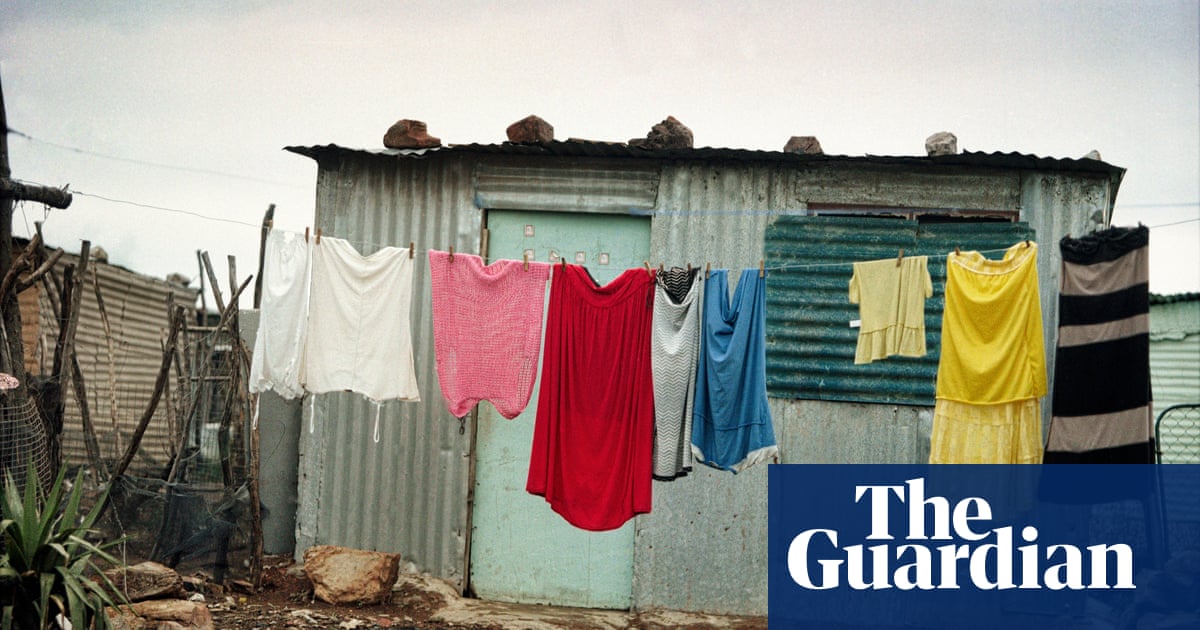The South African photographer Lindokuhle Sobekwa, whose experimental work has been praised for its “power and simplicity” and explores family ties, myth and post-apartheid life, has won the Deutsche BörsePhotographyFoundation prize 2025.
Sobekwa was awarded the £30,000 prize, one of the most prestigious in the industry, at the Photographers’ Gallery in London on Thursday for his work I Carry Her Photo With Me that focuses on the life and disappearance of his half-sister, Ziyanda.
Anne-Marie Beckmann, the director of the Deutsche Börse Photography Foundation, said: “The project is an exploration of a personal and familial narrative, of sibling relationships and of family dynamics. However, this personal story also informs us of the wider narrative of post-apartheidSouth Africa.”
Ziyanda’s disappearance is the focus of I Carry Her Photo With Me. The photographer did not see his half-sister for 11 years after a childhood accident when he was hit by a car while she was chasing him. His award-winning work is a scrapbook-like attempt to piece together their relationship and her life in those years.
When Ziyanda resurfaced in 2013 she was living in a hostel near the family home and was seriously ill, with scars on her back. She died, aged just 22, shortly after the siblings were reunited, leaving Sobekwa with more questions than answers. Ziyanda would not allow him to take her photograph before she died – an absence the work revolves around.
“She’s not the only one this ever happened to,” the photographertold the Observer last year. “In South Africa, you will hear this story all the time. Every taxi driver will tell you about an uncle or someone else in their family … This is an ongoing dialogue. It’s sort of open-ended …unresolved.”
Photographs are broken up with hand-written notes, and domestic scenes are mixed with intimate moments such as his mother reading her Bible, which the judges said combined to create a “powerful narrative, presented in a simple, clear, and accessible way”.
Shoair Mavlian, the director of the Photographers’ Gallery and chair of the Deutsche Börse jury, said: “Lindokuhle winning the prize in 2025 reflects photography’s ability to be a tool for transformative storytelling. It shows how simple tools like a camera, chemist-style prints, notebook, and pen can be used to tell a story that connects and resonates with people.”
The jury also acknowledged the “incredibly strong and resonant” work of theother shortlisted artists– Cristina De Middel, Rahim Fortune and Tarrah Krajnak – who received £5,000 each.
This year’s prize was described as “a quiet, solemn and laconic show” by the photography journalist Charlotte Jansen, that ranged from “lyrical, captivating portraits of Versace-clad Black cowboys in the American south to a woman hugging rocks”.
Jansen said of the winning work: “The pain of Sobekwa’s grief is penetrating; in one image, he catches his shadow cast over her grave. His photographs are often hazy, evanescent light fading like memories, the camera trying to clutch and fix the image before it is gone for ever.”
Theexhibition, showcasing all four artists, is at the Photographers’ Gallery until 15 June
